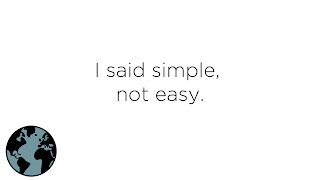Burger King Christians. Hmmm. I've always thought of it in terms of Frank Sinatra's "I'll do it my way." Can I have God my way? No. Do I try? Yes. Are churches built, at some level, around the idea that we manage God? Yes. Does God laugh? I hope so.
There has been a radical shift in our culture of faith over the last fifty years. I often think of it in terms of choice. Whereas our culture once prized dedication, hard work, discipline, and submission to authority/family/God, we now prize our right to choice: I don't have to spend my time in worship, prayer, God's Word, a faith community, or even with my family...I have other things to do. We are an entitled culture riddled with too many choices in my opinion.
I am liberated in my walk of faith by the realization that I don't have to have it my way. I have let go of the details of ultimate concern. I don't need hymns my way, church my way, or people to behave my way. On a good day, I am merely focused on being a follower of The Way. There is more of a sense of freedom in this earliest designation of Christians. And, in such simplicity I find freedom in faith and belief.
Freedom springs from my heart rather than my head. I am quite content to intellectualize relationships and even God. But, when I let go, I can glimpse the promise of true hope as the eyes of my heart find enlightenment. Such a conversion, a letting go, is not easy for this introvert geared toward thinking. In more authentic moments I am reminded of this simplicity: be still and know that I am God.
While we often recoil at the idea of "cafeteria, pick and choose Christians" we all do it to some extent. In order to define who we are, we hone our interpretation of our world and our community. We define who we are as much as who we are not. Does this mean God will bend to our will? Certainly not. Do we sometimes behave as if? Yes, sadly. Does the power of greatness lie within me? No. Does it lie in my letting go, my accepting what is, right here and right now? Yes, so it seems. For me, the hope to which God has called lies in simplicity rather than complexity. When I can remember this heart revelation, life does seem to flow smoother, but not necessarily easier.










































.jpg)





.jpg)

.jpg)


